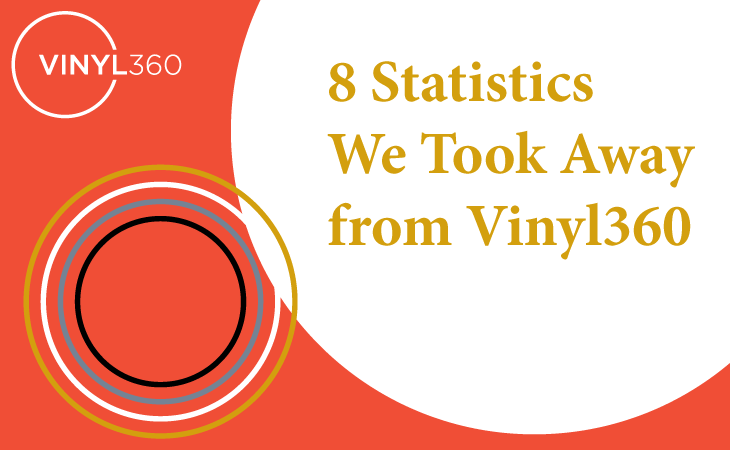This website uses cookies so that we can provide you with the best user experience possible. Cookie information is stored in your browser and performs functions such as recognising you when you return to our website and helping our team to understand which sections of the website you find most interesting and useful.
News
8 Statistics We Took Away from Vinyl360
At the Vinyl360 annual conference in Washington, speakers talked about corporate social responsibility, innovation, housing trends, the legislative outlook, and the upcoming U.S. election. Here are 8 statistics we took away from Vinyl360.
7.5 billion.
The number of people on the planet today.
Cristian Barcan, the VI’s vice president of sustainability, said that the current earth’s population means that we are “borrowing half of the resources from the next generation.” His point: we are not sustainable today – let alone when we add a projected 30% more people to the planet in the next 35 years. From a business perspective, Barcan said that the choice is between “being a follower or being a leader to drive improvement and sustainability.”
12.
The number of global stock exchanges that have environmental, social, and governance (ESG) disclosure rules on the books.
Barcan showed a series of slides from NASDAQ director of corporate responsibility, Evan Harvey, that demonstrate that financial markets are asking questions about sustainability and want to see this information embedded in annual reports. In addition to the 12 that require ESG, an addition 15 have published listed company disclosure guidance and an addition 23 have committed to publish such guidance this year.
$90 million.
The savings to SAP in the first two years of its sustainability program.
Jim Sullivan, SAP’s vice president of sustainability management and strategy, discussed his company’s decision to embed sustainability into its core business. One element of that plan was a goal to reduce greenhouse gas emissions to 2000 levels by 2020. Over time, how they achieved this has shifted as the company discovered “the difference between compliance to a policy and innovation.”
75 million.
The number of millennials in and entering the workforce.
Ken Gear, executive director of Leading Builders of America, said that millennials are looking for different types of housing compared to other recent generations. He stressed that convenience is very important. “They want to be near shopping, grocery stores, and bars,” he said. Gear said that this points to more urban living in the suburbs in order to create an urban environment at an affordable price point.
37%.
The percentage of renters in America.
Doug Bibby, president of the National Multifamily Housing Council, talked about the challenges in the rental market today. He said that there are fewer and fewer affordable housing units on the market as older units are decommissioned and replaced by high-end units. Bibby pointed out that the costs of building (e.g., federal, state, and local regulatory requirements) have made it extremely difficult to build affordable housing. He suggested that developers have to be part of the solution – rehabilitating older units to ensure multiple price points across the rental spectrum.
4.9%.
Unemployment in America.
Elliott Eisenberg, chief economist at Laughs and Graphs, provided an economic forecast. He said that by almost every measure the U.S. economy is in recovery. Unemployment is low, consumer confidence is holding steady, and households have less debt. At the same time, Eisenberg pointed out that a strong U.S. dollar is hurting exports relative to imports. One other big challenge: a shrinking labor pool is increasing wages; coupled with low labor productivity, this means any wage growth is coming out of corporate profits. Fewer profits means less capital available to invest in new plants and equipment.
10%.
U.S. companies’ lost trade opportunity to China.
Ken Monahan, director of international trade policy for the National Association of Manufacturers, discussed the importance of trade and new trade agreements. In particular, he pointed to the need to finalize the Trans-Pacific Partnership (TPP) and the opportunity to expand market share.
81%.
The percentage of Iowa primary voters who thought Republicans in Congress compromised too much.
Amy Walter, national editor of Cook Political Report, provided a sobering look at the state of electoral politics. She said that the partisan divide in the U.S., coupled with the prospect of more divided government, means that “it’s hard to see this as anything but more gridlock for the next four years.” Walter also suggested that this year’s election is a tipping point and not an anomaly. “No one knows what it’s like to live in a tipping point when you’re in a tipping point,” she said, “and we don’t know what’s going to happen on the other side.”


